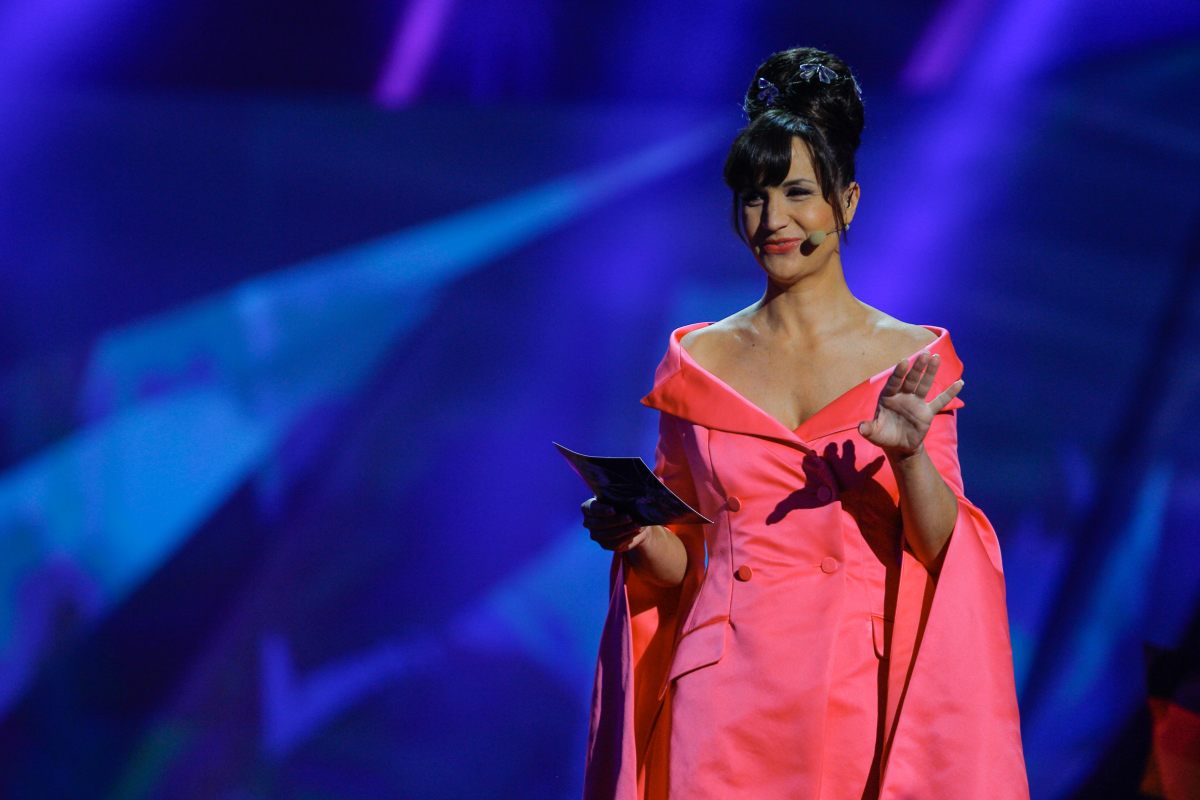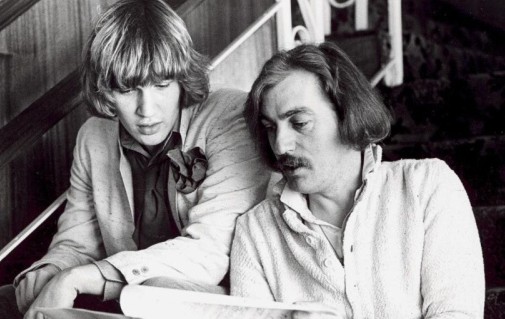As the EBU continues to investigate the 2013 Eurovision voting scandal, it’s time to rethink the voting system at Eurovision. How do you measure the best act at Eurovision? How should the final votes be calculated? Regardless of your answer, it’s clear something must be done. Just look at poor Ireland this year. Ryan Dolan was clearly liked better than some other acts in almost every country, but he still finished last.
First, should each country have equal weight? Should the votes of the 32,000 people in San Marino count equally with the 143 million in Russia? On the flip side, if all votes are combined in one pot, then the eight largest countries decide the event.
One possibility is to weight each country (yes this is similar to the U.S. Congress). Each country has a weight of 2. And then an additional weight of 78 (2 * 39 participating countries) is apportioned based on vote totals from that country. Say Russia contributed 10% of the vote, it would have a weight of 2 + 7.8 = 9.8. That weight is multiplied to each country’s final vote when combining all votes to get the final total. So Russia would likely have 5 times the weight of San Marino. That’s more, but San Marino still matters.
Another possibility is to combine all votes across Europe into one total count (“We Are One”, right?) and then combine that with the per country vote results. These two votes do not have to have equal weight, but it would both give some weight based on number of voters. And it would also put some weight to a vote averaged across all countries.
Second, should there be a jury vote? The juries are less swayed by draw order and that’s very important. On the flip side some of the juries appear to be brain dead (the U.K. probably has the same morons selecting the jury as select their entries). And some juries may well be bought off (really – Malta selects Azerbaijan as the best act every year?).
 And do juries even make for better results? This year the jury hurt Romania the most and helped Sweden the most. Results that put Sweden 3rd and Romania 24th are way off base. On the flip side, last year the jury gave Pastora Soler a well deserved 5th place while the televote put her in 18th.
And do juries even make for better results? This year the jury hurt Romania the most and helped Sweden the most. Results that put Sweden 3rd and Romania 24th are way off base. On the flip side, last year the jury gave Pastora Soler a well deserved 5th place while the televote put her in 18th.
Third, if juries are here to stay, how should they be selected? How free are jurors to vote in Azerbaijan, Belarus, and Russia? And even in democratic countries, many of the jurors work in the industry and as such they will tend to curry favor with those they need for future work.
Even if a country selects honest independent jurors, are they people with sufficient knowledge to make a good decision? Say a Greek feels comfortable giving 12 points to Turkey or Germany (which would have people more upset?), are they a qualified juror?
Keep in mind musical taste is different for each individual. What makes the juror’s preferences any more valid than mine? And if they’re measuring by technical perfection – that is not what makes for an appealing act. It helps, but it’s not even a majority of the presentation.
Fourth, how should the votes be totaled? If the televote is 78% for the 1st place act and the jury vote is 20% for their 1st place votes, are those 1st place votes equal? If a country’s combined vote for 1st place is 65%, is that the equal to another country where the combined 1st place vote is 15%?
Another approach is for each country to have a total of 67 votes and they are allocated among the top 11 acts, based on the percentage they get. If a country really, really likes an act, then they can give .78 * 67 or 52 votes, with a lot fewer votes to the remaining acts. At present the voting is a step function where 1 more vote than the 2nd place act gains as many final votes as getting 98% of the votes in a country.
What do you think? What would make for the best system? And what is the desired result of a “best” system?
David T contributed this report from Colorado. Follow the team from wiwibloggs.com on Twitter @wiwibloggs and keep up with the latest Eurovision news by liking our Facebook page.
Photos: Dennis Stachel (EBU)











In my opinion, the old voting sistem is better. At least public and jury will vote using the same criteria, easy to understand for everybody.
As we already have seen, changing voting algoritm this year didn’t stop northern countries and ex-sovietic countries to vote in block, but literally smashed ex-yugoslavian countries and pull down Romanian song. So, if you are rich and/or big and if you really want, you can manipulate the final score using the complicate and confusing actual voting system. If you are not…
A “fully democratic” vote is an excellent way to make it impossible for certain small countries (San Marino) to do well. In general, governmental systems are not fully democracies because democracy can function as mob rule. A majority can overrule the rights or interests of a minority, regardless of the validity of the rights or the merit of the interests. Hence there is additional structure in the government which is provided to rectify this problem. In the case of Eurovision, the countries with the least amount of geopolitical support suffer hard, regardless of how good the entries are. This is… Read more »
@Aufrechtgehn: all 39 voting in final is fair as they all have participated in the competition albeit some eliminated in semifinals (paid the yearly fee, aired the show)… my question would rather be why the big 5 (6 with previous winner) are allowed to vote in semifinals (where they are not present)… but whatever With regard to voting system whichever it is it should be simple to understand and the full results should be released few days after the final to avoid harmful speculations. If small countries cannot have a public voting that is immune to manipulation it should be… Read more »
Way too complicated. Apart from the die-hard fans, the average viewer doesn’t care about the voting process. Still, I agree, there are a few crucial alterations to make. First of all, we have to get rid of the damn juries. They simply suck, vote down great songs and tempt countries to enter music that’s irrelevant to the pop market, but tailor-made for the juries’ tastes. Plus, in a democratic society, all power should come from the people. Which brings me to my next point. Democracy means: one man – one vote. And that’s the way it should be at Eurovision.… Read more »
I don’t think viewers would want to listen to a whole explanation of the countries weight on the night! Although I agree with Ben Robertson on the Melodifestivalen 50% jury/televote. This would reduce the number of countries having the rely on one extreme over the other. Good on televoting but bad on jury as in YOHIO’s case and vice versa. I’m in favour of keeping the juries. However, the juries should only consists of musicians and composers with experience in the music industry, not some journalist or presenter judging the entries. And there should a variety of ages from the… Read more »
I think that the same system should be carried out but points should be given to all entries except the one that came dead last. That means points are given out 1-25.
Interesting ideas as always. The best way to try and construct what we want to be a fair voting system is probably to dictate what we want. I would like Eurovision voting to ensure: 1) If something is a jury or a televote favourite in a country, then at the absolute worst case scenario they both get in the top 10 and announced as points. 2) If the jury do not really have favourites, then I want their effect to be nullified in the country of voting. 3) Ranking every song like this year is a tedious process and at… Read more »
I have a love-hate relationship with the jury and televoters, so I have complicated feelings about this. The one thing I don’t like about giving a proportion based on population is that a few countries would dominate Eurovision (Russia, Germany, France, UK, Italy, Spain). So there would be a “Big 6” to some extent. Here is what I propose: if the difference between the televoting and jury points for one country is more than 5 places, the televoting gets prominence. Also, there should be more spots in the final. Imagine if there were 30 songs per year. It’s only 15… Read more »
All of those suggestions are pretty bad. They’re way too complex for you casual viewer. Can imagine that being explained during the night, and can you imagine how the votes would be presented with some of the suggestions? The viewers would be WTF?!
I definitely think that the juries and televoters should have equal wait. Theoretically, the jurors, given their professional expertise, should be better able to evaluate the lyrical, musical, and performance aspects of an entry than the typical layperson. Though, I think that the juries need to be larger (there’s a nice article on ESC Insight about that). And, since the juries have been back, there has been a better diversity among musical styles and geography, I think, of entries that qualify for the final and finish in the Top Ten. The in-country weighted voting is an intriguing idea (given the… Read more »